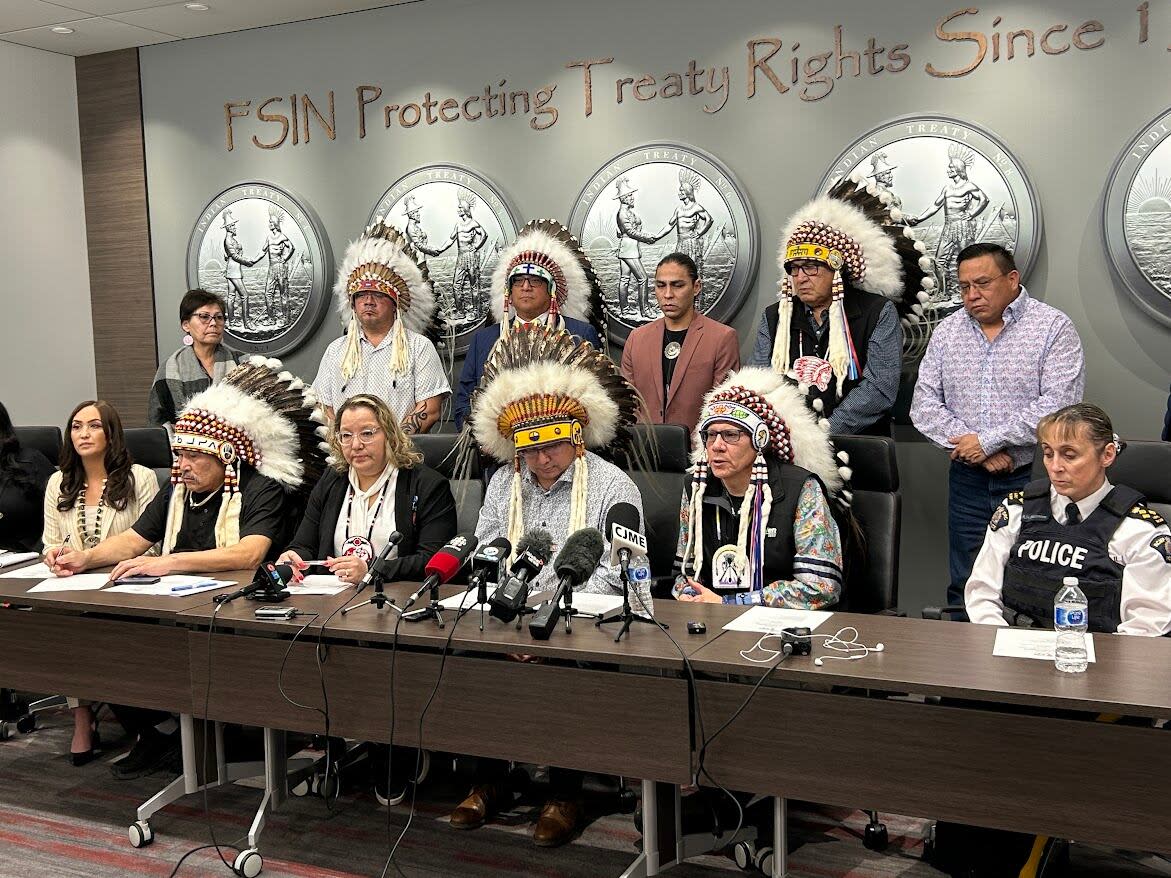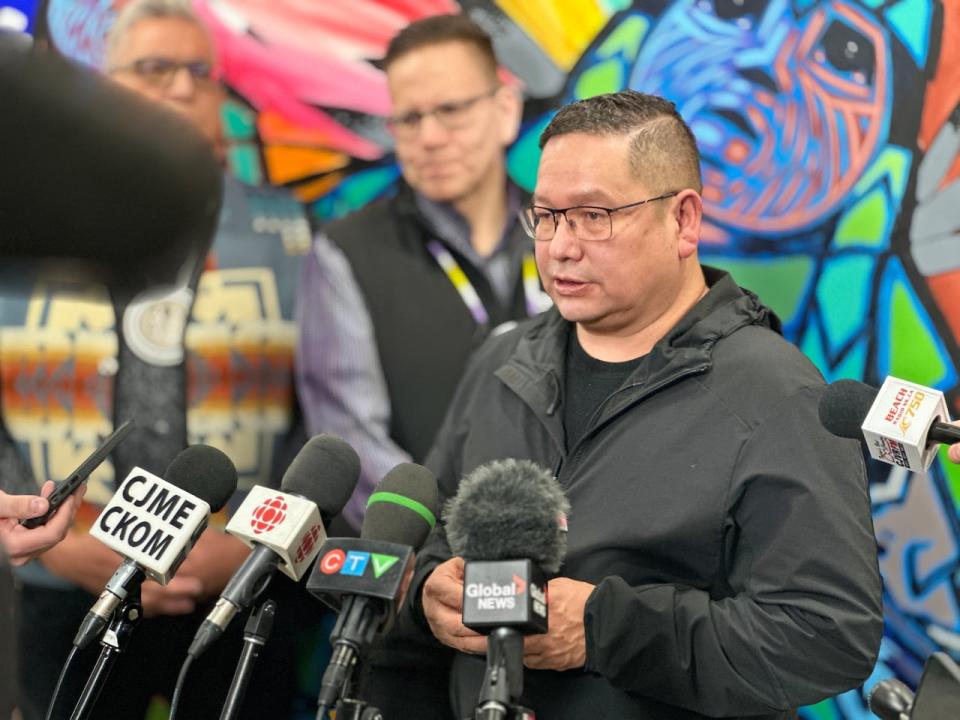James Smith Cree Nation chiefs, other leaders speak about inquest into stabbing massacre

After a nearly three-week long inquest into the violent attacks in their community, James Smith Cree Nation chiefs are among those commenting at a news conference Thursday on the recommendations laid out by the jury and the coroner running the proceedings.
James Smith resident Myles Sanderson killed 11 people — 10 in the community and one in the nearby village of Weldon, Sask. — on Sept. 4, 2022.
The inquest examining the massacre ended on Wednesday with a panel of six jurors providing their findings on how and when each person died and 14 recommendations to prevent similar deaths from happening again. Coroner Blaine Beaven, who oversaw the inquest, added another 15 recommendations.
The recommendations are directed to organizations like the RCMP and Correctional Service of Canada, and to James Smith Cree Nation itself.
"Our hearts are still heavy from Sept. 4," James Smith Cree Nation Chief Wally Burns said Thursday at a news conference held at the Federation of Sovereign Indigenous Nations office in Saskatoon.
"I lost a lot of people, a lot of relations, and it's sad to hear how they had to die."
Burn said he has been focusing on Indigenous ceremony since the massacre to ease his pain.
When asked for a timeline of when James Smith Cree Nation would implement the recommendations, Chief Robert Head of Peter Chapman Band, one of the bands that make of James Smith Cree Nation, said the First Nations need to consider the recommendations, and bring them to community members and victims' families for input.

James Smith Cree Nation Chief Wally Burns following the coroner's inquest into the mass stabbing that happened in the community. He is expected to comment Thursday on the recommendations that came out of the inquest. (Chanss Lagaden/CBC)
Assistant commissioner Rhonda Blackmore, the commanding officer of the RCMP in Saskatchewan, said Thursday that the Mounties are committed to looking at the inquest recommendations and improving relations with James Smith Cree Nation.
Blackmore said the police force needs appropriate funding and human resources to proactively stop tragedies like this one from happening. She said that while First Nation communities are looking to create community police forces, but "it's not something that you do overnight."
In the meantime, she said, RCMP have created an Indigenous recruiting unit and an all-Indigenous troop is set to be trained this spring.
A news release from the Federation of Sovereign Indigenous Nations (FSIN) ahead of the news conference said the chiefs of James Smith Cree Nation are frustrated that the mass stabbing hasn't been recognized as a national issue and called for a national inquiry.
"A local coroner's inquest is not sufficient to investigate the causes and consequences of this horrific event that has impacted the lives of many Indigenous people," it said.

